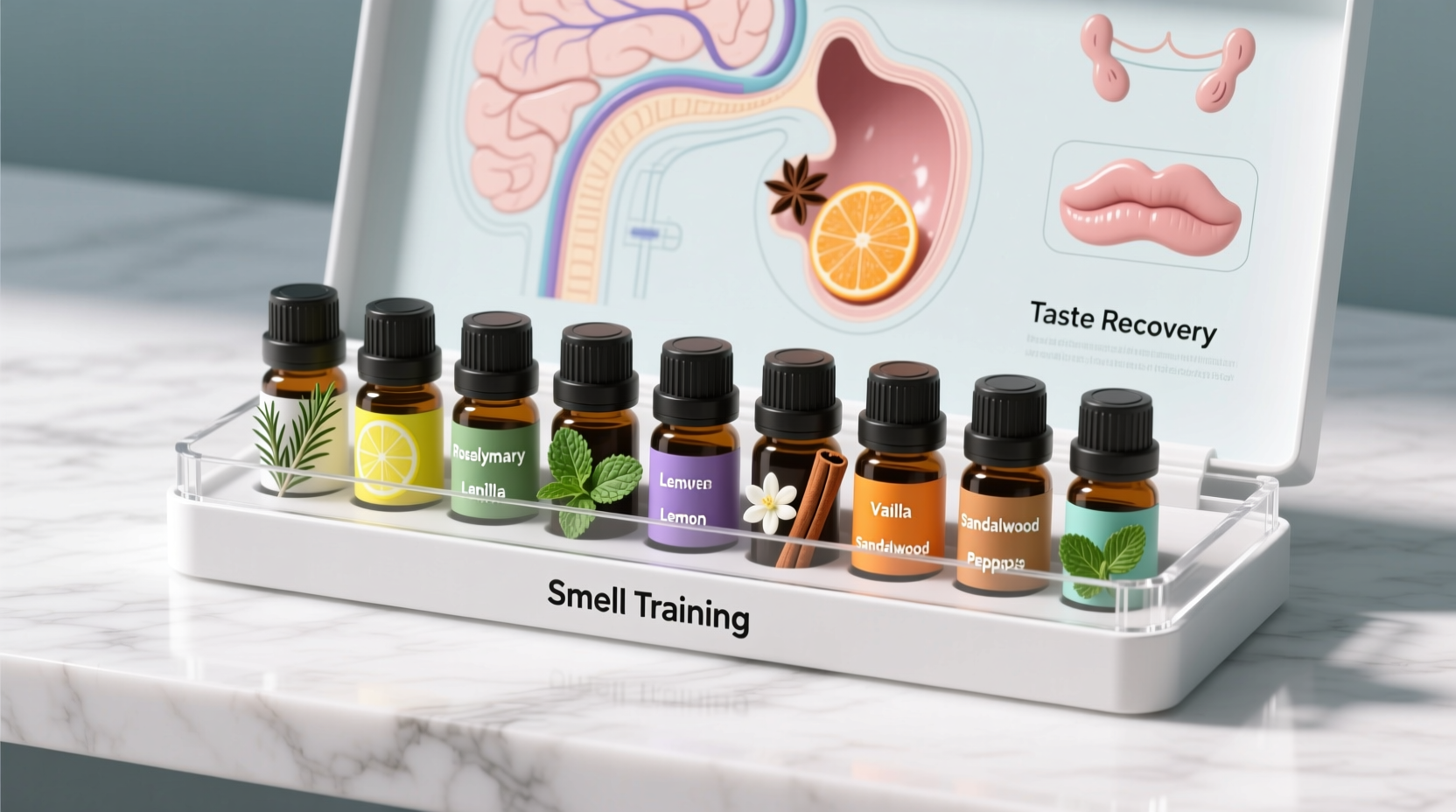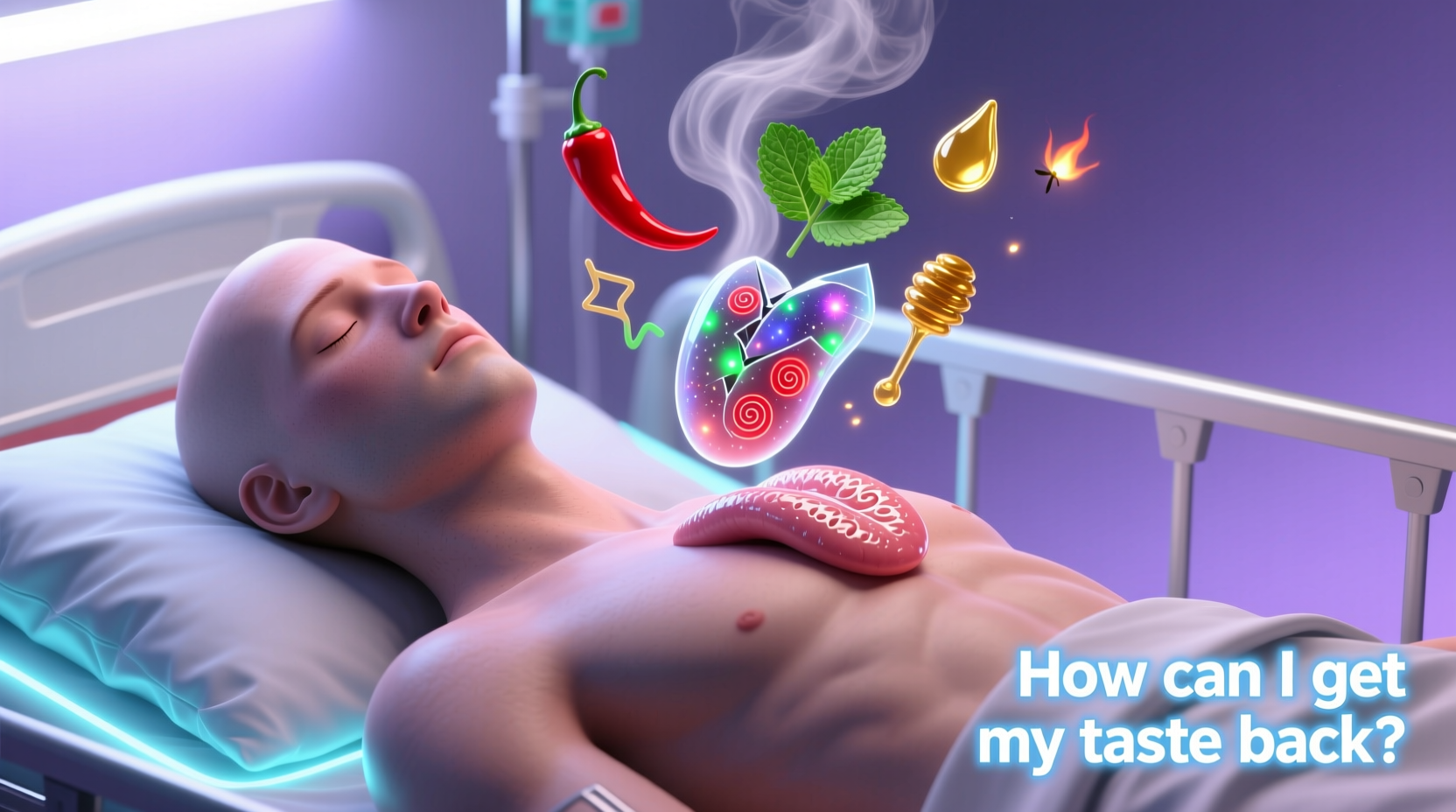Why Your Taste Disappears and How to Fix It
When your favorite foods suddenly taste like cardboard, it's more than just frustrating—it affects your nutrition, enjoyment of meals, and overall quality of life. Whether you've recently battled a cold, recovered from COVID-19, or experienced unexplained taste loss, understanding the root cause determines your recovery path. Let's explore what actually works based on current medical research.
Understanding Taste vs. Flavor: The Critical Distinction
What most people call "taste loss" is actually flavor perception impairment. True taste (sweet, salty, sour, bitter, umami) comes from tongue receptors, while 80% of flavor comes from your sense of smell. This explains why nasal congestion from colds dramatically reduces food enjoyment.
| Cause of Taste Loss | Recovery Timeline | Most Effective Solutions |
|---|---|---|
| Viral infection (including COVID-19) | 2-8 weeks (75% recover within 4 weeks) | Smell training, hydration, zinc supplementation (under medical supervision) |
| Sinus issues/allergies | Days to weeks after congestion clears | Nasal irrigation, antihistamines, steam therapy |
| Medication side effects | Varies by medication | Consult doctor about alternatives, timing adjustments |
| Nutritional deficiencies | Weeks to months | Zinc, vitamin B12, copper supplementation (with medical guidance) |
Your Step-by-Step Recovery Plan
Phase 1: Identify the Root Cause (Days 1-3)
Before trying remedies, determine why your taste disappeared:
- Recent illness? Post-viral smell/taste dysfunction accounts for 40% of cases according to American Academy of Otolaryngology
- Medication changes? Over 400 medications list taste disturbance as a side effect
- Dental issues? Poor oral hygiene or gum disease can impair taste perception
Phase 2: Implement Targeted Solutions (Weeks 1-4)
Smell Training Therapy (For Post-Viral Cases)
This evidence-based technique involves daily scent exposure to retrain your brain:
- Use four distinct essential oils (lemon, rose, clove, eucalyptus)
- Sniff each for 20 seconds, twice daily
- Focus on recalling the scent's memory and expected flavor
According to a 2021 NIH study, consistent smell training improved recovery rates by 30-60% compared to no intervention.
Nutritional Support That Actually Works
While zinc supplements are commonly suggested, research shows context matters:
- Zinc gluconate may help only if deficiency exists (confirmed by blood test)
- Excessive zinc (>40mg/day) can worsen taste perception
- Vitamin B12 deficiency (common in vegetarians) directly impacts taste buds

Phase 3: Optimize Your Eating Experience During Recovery
While waiting for full recovery, enhance meal satisfaction:
- Texture variation: Combine crunchy and smooth elements in one dish
- Temperature contrast: Serve warm proteins with cool salads
- Acid boost: A splash of citrus or vinegar can heighten remaining taste sensations
- Umami enhancement: Use mushrooms, tomatoes, or Parmesan to trigger savory receptors
When to See a Doctor: Critical Warning Signs
While most cases resolve spontaneously, consult an ENT specialist if you experience:
- Taste loss persisting beyond 4 weeks
- Accompanying symptoms like ear pain or dizziness
- Complete loss of both smell AND taste simultaneously
- History of head injury preceding taste changes
The Mayo Clinic recommends professional evaluation for persistent symptoms, as some underlying conditions require specific treatments.
Realistic Recovery Timeline Expectations
Understanding the natural progression reduces anxiety during recovery:
- Weeks 1-2: Metallic or distorted tastes often indicate healing beginning
- Weeks 3-4: Basic tastes (sweet/salty) typically return before complex flavors
- Weeks 5-8: Full recovery for most viral-related cases
- 3+ months: May require specialized intervention for persistent cases
A CDC analysis of long-term COVID symptoms found 95% of patients with smell/taste disorders recovered within 6 months, with gradual improvement being the norm.
Avoid These Common Recovery Mistakes
Well-meaning but counterproductive approaches include:
- Overloading with strong flavors: Can overwhelm recovering receptors
- Excessive salt/sugar: Masks rather than restores true taste perception
- Unsupervised high-dose supplements: May cause additional health issues
- Smoking or vaping: Further damages taste and smell receptors
When Patience Pays Off: The Body's Natural Healing Process
Your taste buds renew themselves every 10-14 days, which is why time remains the most powerful healer for many cases. Combine this natural regeneration with evidence-based approaches for optimal results. Remember that partial recovery often precedes complete restoration—those first hints of flavor you detect are positive signs your system is healing.











 浙公网安备
33010002000092号
浙公网安备
33010002000092号 浙B2-20120091-4
浙B2-20120091-4